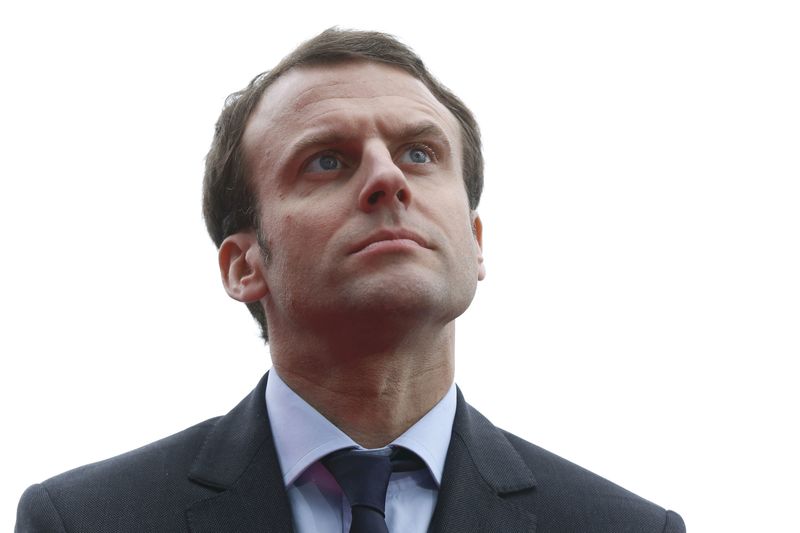STRASBOURG (Reuters) - France's economy minister on Monday sought to pressure the European Commission into raising import tariffs to similar levels as the United States to help Europe's ailing steel industry.
France, Britain and Germany are among the countries that have already asked the Commission to help the steel industry, which is suffering from an import surge from China, in particular, and collapsing prices.
Last month, the Commission announced plans to speed up trade defence cases against cheap imports from Beijing and urged EU member states to stop blocking measures that could set higher duties against dumped and subsidised products.
Speaking to reporters at the European Parliament on the sidelines of a meeting with Internal Market Commissioner Elzbieta Bienkowska, Emmanuel Macron said "more pressure" had to be exerted on the Commission and in particular on the issue of tariffs.
"If we want to be a credible common economic zone in facing our partners when they don't respect the rules of the game, then we need sufficiently high tariffs, and so, tariffs comparable to the Americans."
The EU last May set tariffs at an average of 20 percent, but still falls short of the United States, where tariffs are around 300 percent.
"We are not credible. I'm saying to all member states that are blocking this subject: they need to face their responsibilities," Macron said.
The EU is the second largest producer of steel in the world after China. It makes over 177 million tonnes a year, accounting for 11 percent of global output, according to EU data.
Europe has lost 85,000 steel jobs since 2008, over 20 percent of the workforce, according to the industry body Eurofer, as prices crashed to decade lows due to overcapacity, shrinking demand and a flood of cheap imports.
Some 4,000 British steel jobs were lost in October 2015 alone, equivalent to about a fifth of the sector's workforce. Britain's largest steelmaker Tata said on March 30 it would sell its loss-making British business.
In thinly veiled criticism of Britain, which has been blocking higher tariffs in the name of free markets, Macron said countries within the European bloc should think beyond their national interest.

"If we don't want to consider that we are acting as 28 (states) and that we all look at our own individual agendas, then we are committing a short-term mistake. It's a bit of cynical naivety and a real political and moral mistake in the long term," Macron said.